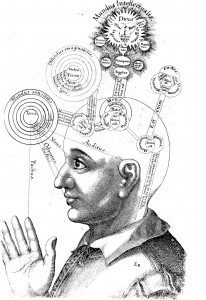
It happens to all of us, except perhaps the incredibly gifted and prolific writers we hear about pumping out 5-10,000 words each day—you know the ones—who will sell you an eBook on how to write a novel in just one week. My best advice for you is to ignore all that hoopla and focus on yourself, your own abilities, and on writing at your own pace. And when that pace slows to zero and you hit the wall and end up struggling for hours, days, or weeks with a difficult concept, a glitch in your story line, a continuity problem, or a character in your plot who simply won’t behave, well, that’s all part of the writing process.
So, what are you going to do about it? Suffer silently and pace the floor, wringing your hands in anguished indecision? Eat everything in the house, including the cat? Bite your nails to bloody stumps? Drink yourself into mindless oblivion?

Start with appreciating that hitting the wall from time to time is all part of the writing game, and if coming up with fantastic solutions around the bricks was easy, everyone would be doing it. I confess to having some pretty good ideas in the shower, and the only problem with that is trying to remember them when I’m sufficiently dry to jot a note. I’ve heard of waterproof note boards you can buy to solve this, but I only remember about them when I’m in the shower.
Going for a walk is the time-honoured aid to successful problem-solving. And, rather than going hell-for-leather in an effort to double up and shed those binge-eating kilos while you’re thinking, try a pleasantly-paced amble instead. There’s also nothing wrong with a bit of a chat to yourself. You’re a writer—you’re allowed to be a bit potty.

How about trying stream of consciousness for a change? Whazzat then? Well, also known as automatism, it’s allowing your mind to run free of all the encumbrances of grammar or syntax or structured thought, and just hitting the keyboard with anything that comes into your head for, say, fifteen or twenty minutes. You don’t stop to contemplate anything you’ve written, you don’t even look at it (otherwise you’ll start correcting it, naturally), until you’ve run dry.
Is the idea new? Not at all. It was introduced by a philosopher and psychologist (told you we were potty), William James, in 1890 and has been used as a tool for interior monologue by writers such as James Joyce, William Faulkner, and Virginia Woolf.

Give it a go! Without thinking too much about your problem, sit down at your keyboard and begin with whatever’s on your mind. It’s almost as if you’re talking to a personal and very private diary, so you can be outspoken and perfectly honest. The important thing is to allow the words to flow, without thinking about them at all. It sounds hard, and it may be at first, but keep at it. It will become quite natural once you’ve overcome your own reticence. When you look back over what you’ve written, you’ll find nuggets of gold gleaming back at you and, more than likely, the way clean through your literary wall.
How do you work through your problems?
